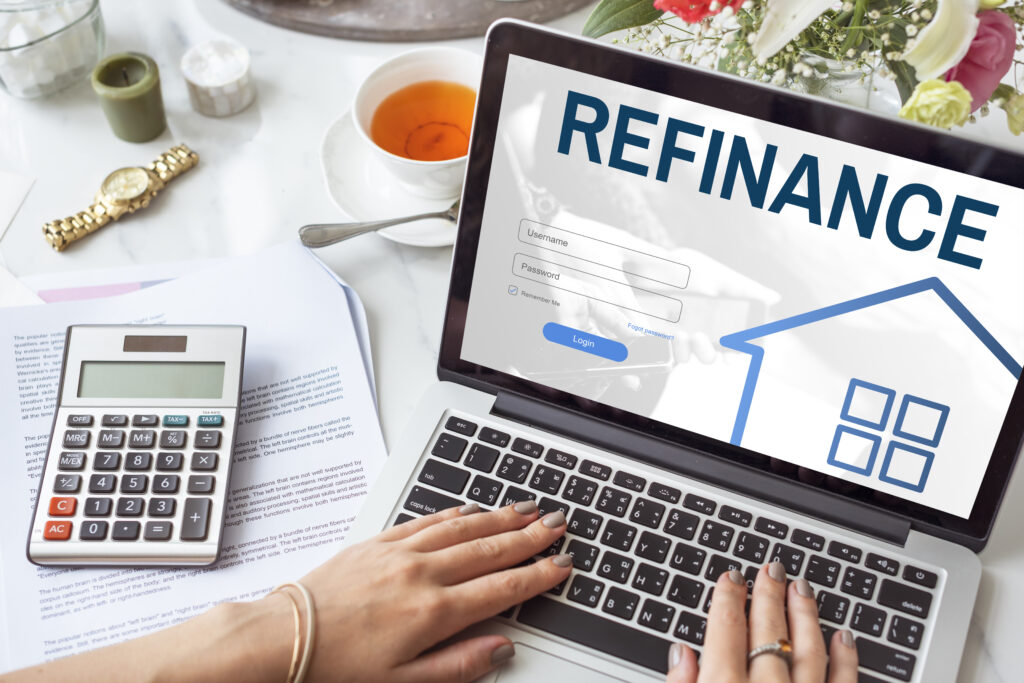Today, you’re going to learn how to refinance your house after a divorce in 10 simple steps.
But first, are you even allowed to refinance your house after a divorce?
Yes, you absolutely can, and this blog post will show you exactly how to do it fast.
Going through a divorce sucks, and it often involves the division of assets, including your home.
If you want to keep your house and remove your ex-spouse from the mortgage, refinancing might be the solution for you.
In this step-by-step guide, we’ll walk you through the process of refinancing your house after a divorce to help you start your new chapter with confidence.
Table of Contents
How to Refinance Your House After a Divorce!

Step 1: Assess Your Financial Situation
Before you begin the refinancing process, it’s crucial to have a clear understanding of your financial situation.
Take stock of your income, expenses, credit score, and outstanding debts.
This assessment will help you determine if refinancing is a viable option and how much you can afford.
Step 2: Review Your Divorce Decree
Review your divorce decree or settlement agreement carefully. It should outline the division of assets and any agreements related to the house. Ensure that you have the legal right to refinance the property and that your ex-spouse’s obligations are clearly defined.
Step 3: Gather Required Documentation
Lenders will require various documents during the refinancing process.
Common documents include:
- Proof of income (pay stubs, tax returns)
- Bank statements
- Credit reports
- Divorce decree or separation agreement
- Property information (appraisal, title, insurance)
- Mortgage statements
Having these documents ready will streamline the application process.
Step 4: Shop for Lenders
Research and compare different lenders to find the one that offers the best terms and interest rates.
You can contact banks, credit unions, and online mortgage lenders.
Don’t forget to ask about their specific requirements for divorce-related refinancing.
Step 5: Pre-Approval
Get pre-approved for a mortgage refinance.
This step involves providing your financial information to the lender for an initial assessment.
Pre-approval will give you a clear idea of the loan amount you qualify for and the interest rate you can expect.
Step 6: Apply for Refinancing
Once you’ve chosen a lender, complete the formal application for refinancing.
Be prepared to provide all the required documentation and answer any additional questions the lender may have.
The lender will evaluate your application, verify your creditworthiness, and assess the property’s value.
Step 7: Appraisal and Inspection
The lender will typically require a professional appraisal to determine the current market value of your home.
They may also request a home inspection to ensure the property is in good condition.
Step 8: Underwriting Process
During underwriting, the lender reviews all the information provided, including your financial documents and the appraisal.
They will assess the risk associated with the loan and decide whether to approve your refinance application.
Step 9: Closing Process
If your application is approved, you’ll move to the closing phase.
During this stage, you’ll sign the necessary paperwork to finalize the refinance.
Be prepared for closing costs, which can include fees for the appraisal, title search, and other administrative expenses.
Step 10: Removing Your Ex-Spouse from the Mortgage
After the refinance is complete, your ex-spouse should no longer be tied to the mortgage.
Ensure that the necessary legal steps are taken to remove their name from the property title and mortgage documents.
Conclusion & Wrap-Up
Refinancing your house after a divorce can provide you with a fresh financial start and the opportunity to secure your home on your terms.
However, it’s essential to navigate the process carefully, considering both the financial and legal aspects.
Consulting with a financial advisor or attorney experienced in divorce-related property matters can be invaluable throughout this journey.
Remember that this process can take time, so patience and persistence are key.
With the right approach, you can successfully refinance your house and move forward with your life post-divorce.
Want to Buy or Refinance Your Home for Less? WE CAN HELP!
You’ve got questions…
We’ve got expert answers!
If you want to buy or refinance your home for less, or if you have questions about getting the best interest rate, obtaining jumbo loan financing, or any other questions about what loan products you may qualify for, you can get in touch with us HERE.
>> Click HERE to get a great low mortgage rate in 60 seconds or less!
About the Author

Brian Reese is a senior advisor and co-owner at District Lending. He is one of the world’s leading experts in veteran benefits, having helped millions of veterans secure their financial future since 2013. Brian is the founder VA Claims Insider, an education-based Coaching & Consulting company whose mission is to educate and empower veterans to get the VA disability benefits they’ve earned for their honorable service. A former active-duty air force officer, Brian deployed to Afghanistan in support of Operation Enduring Freedom. He is a distinguished graduate of management of the United States Air Force Academy and earned his MBA as a National Honor Scholar from the Spears School of Business at Oklahoma State University.
In Brian’s Words:
“As a military veteran, I’ve made it my life’s mission to help people live happier and wealthier lives. District Lending brings this mission to life. We believe in integrity, honesty, and transparency, which is why you’ll see our rates right on our website. You’ll find lower rates and zero lending fees, which means you can buy your dream home for less. The savings are passed on to you — the way it should be.”
– Brian Reese, Advisor and Co-Owner, District Lending






